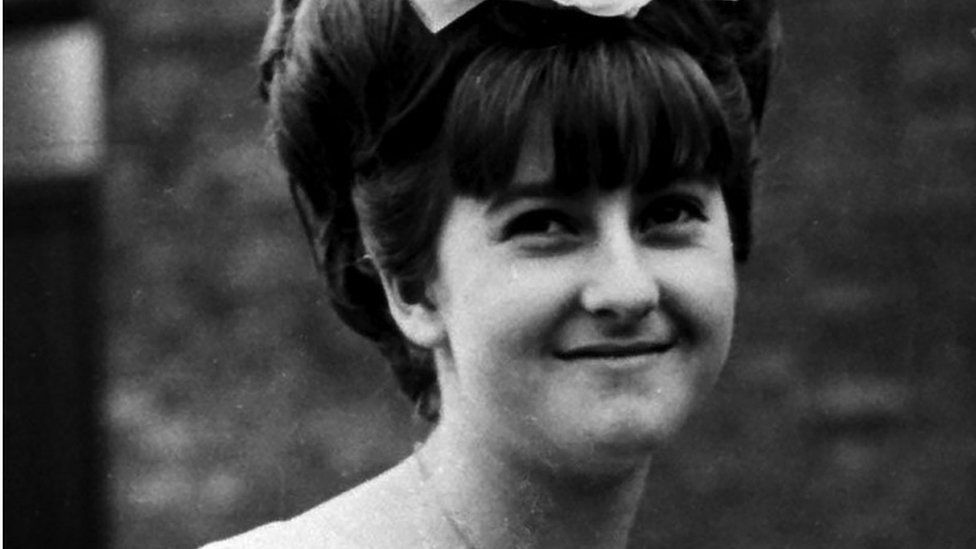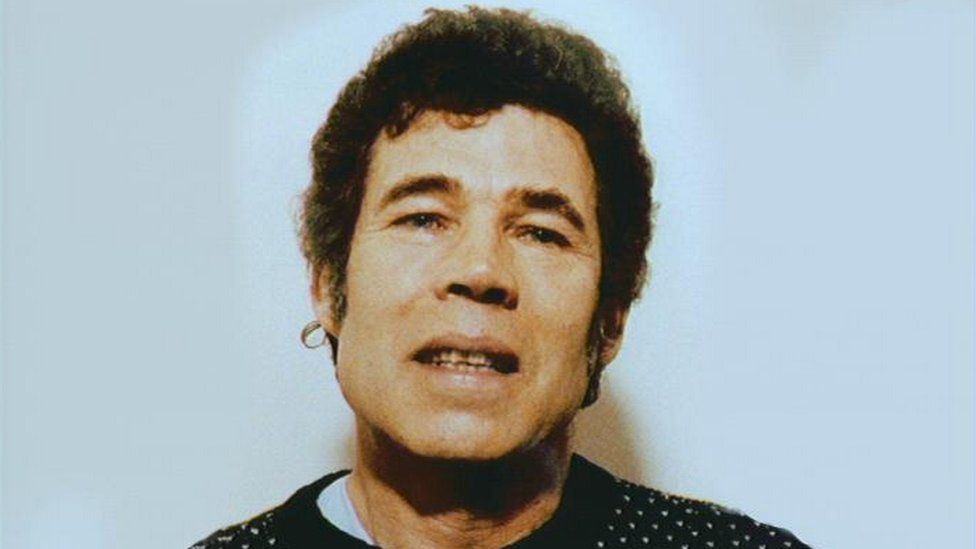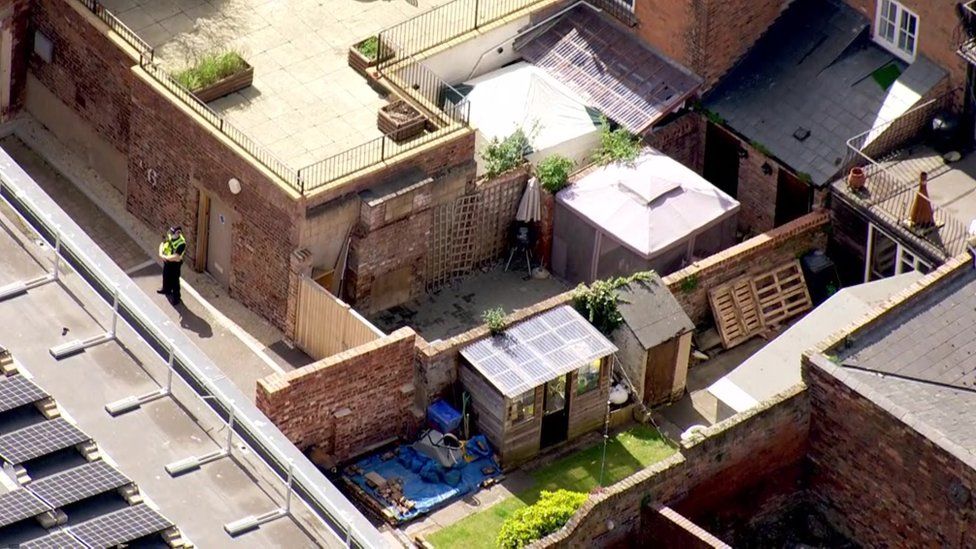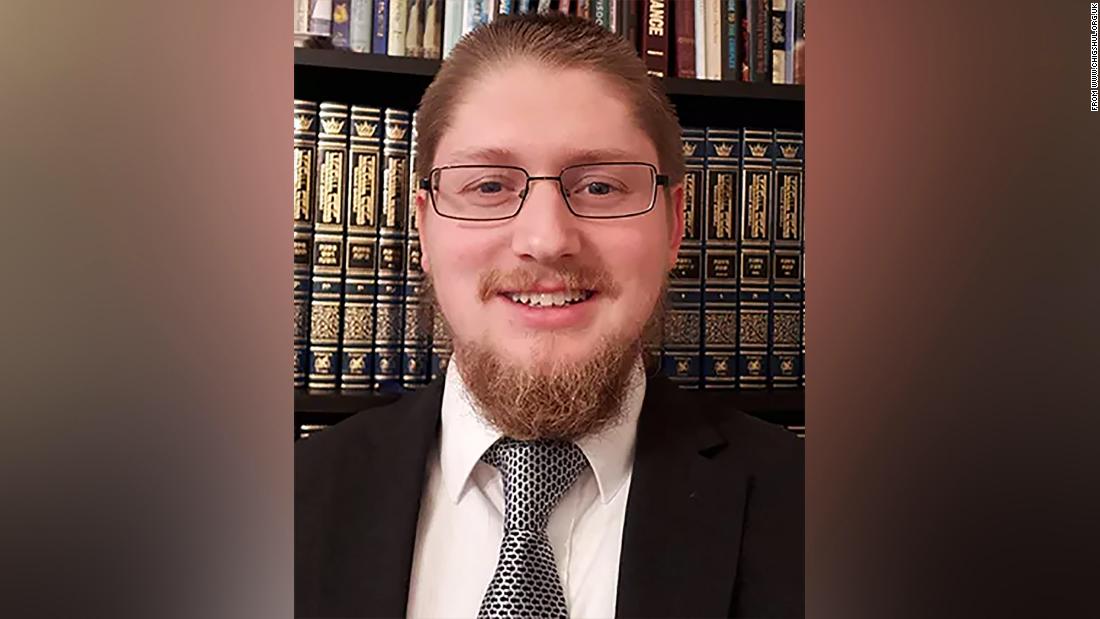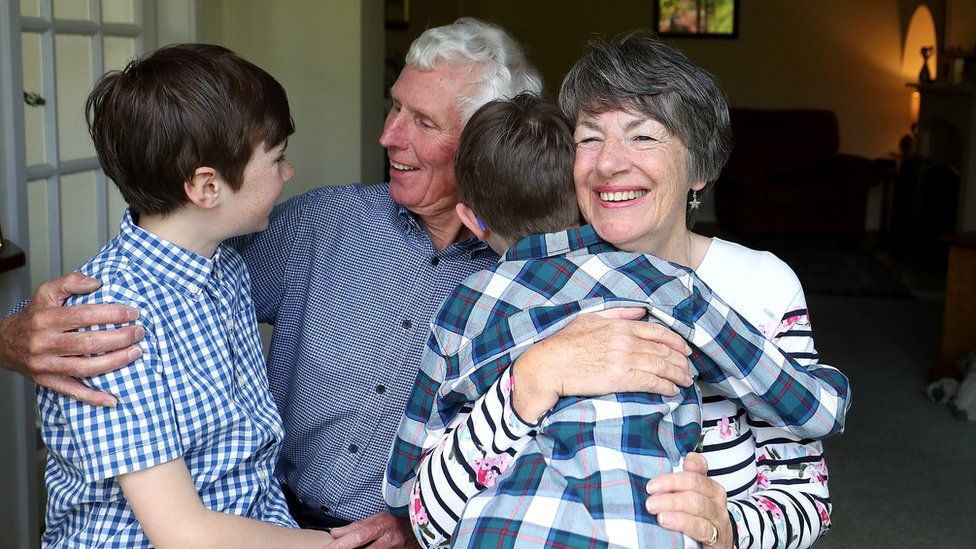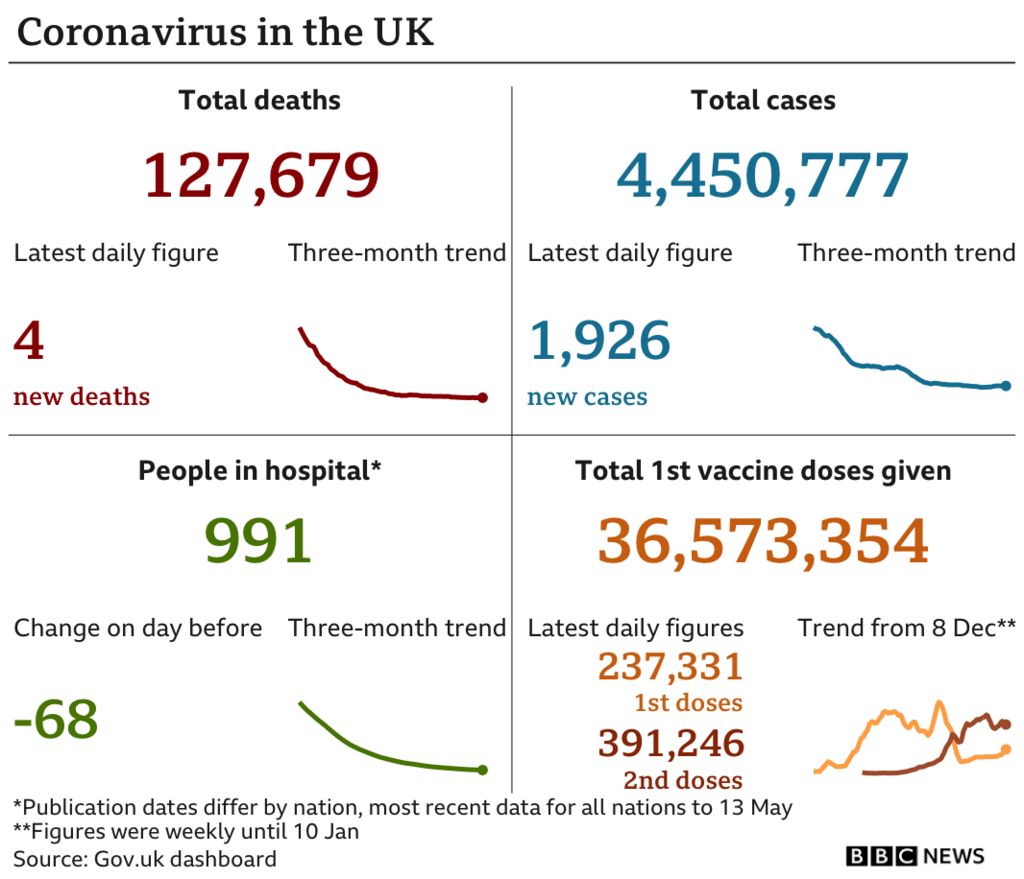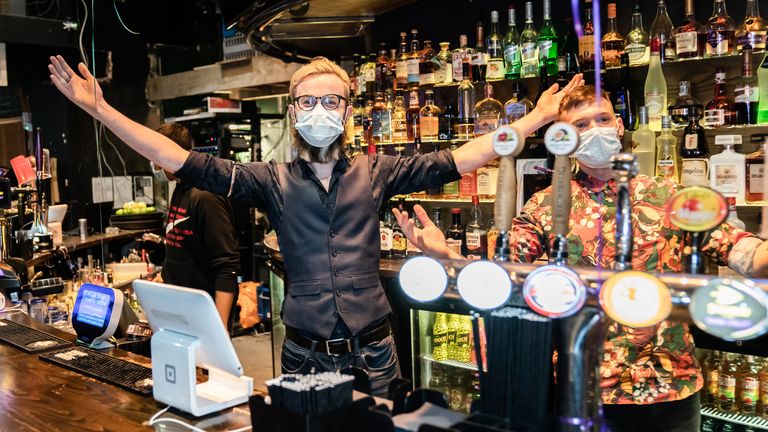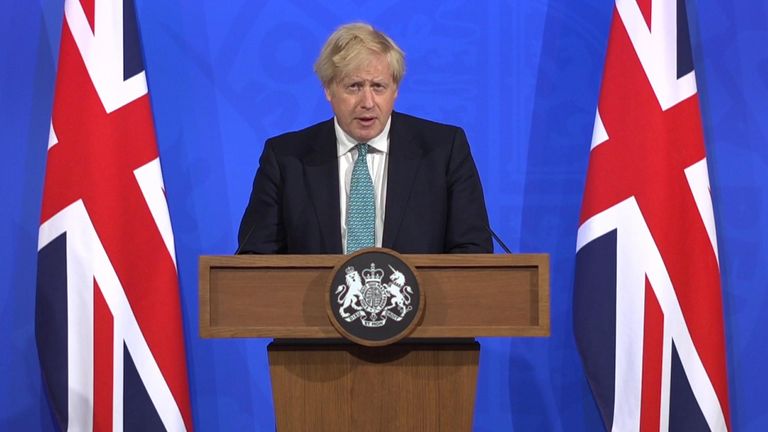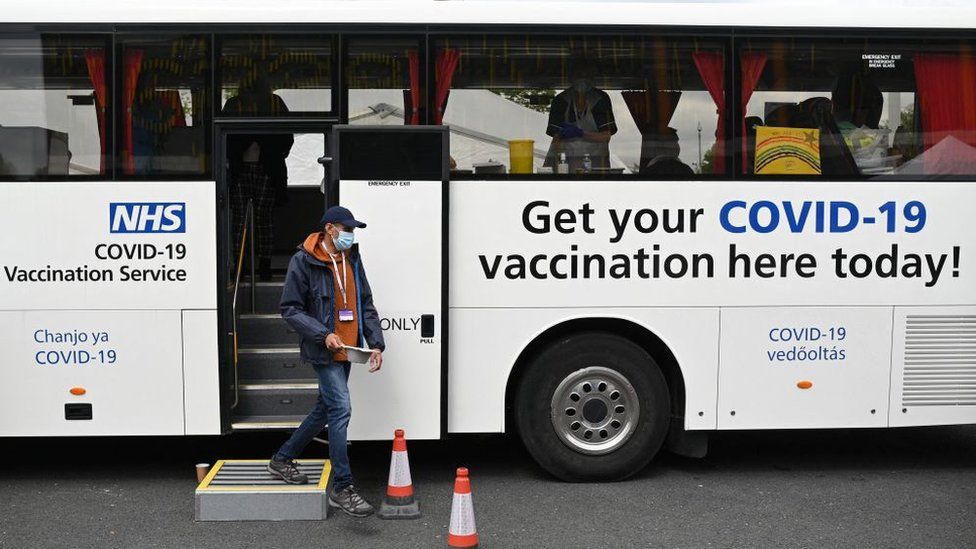
Ministers will step up calls for people to book a Covid vaccination as soon as they are offered one, amid increasing concern about the risks posed by the Indian variant.
The health secretary said anyone who was unsure should look at Bolton, where most people in hospital with Covid were eligible for a jab but had not had one.
Matt Hancock said 86 local councils had five or more cases of the variant.
It comes as lockdowns eased in England, Wales and most of Scotland on Monday.
Yasmin Qureshi, the Labour MP for Bolton South East, challenged the suggestion that her constituents had refused the vaccine, blaming poor organisation instead.
Meanwhile, millions of people have been enjoying new freedoms - such as indoor pints, hugs with loved ones and foreign holidays - for the first time in months, under the latest relaxation of rules across the three nations.
But amid concern over rising numbers of the variant first found in India - which is thought to be more transmissible - the government has warned its next review of social distancing rules may be delayed.
Ministers are now said to be considering contingency plans for local lockdowns if the variant cannot be brought under control, according to the Times newspaper.
Mr Hancock told the House of Commons on Monday that there had been 2,323 confirmed cases of the Indian variant across the UK, saying it was now the dominant strain in Bolton and neighbouring Blackburn and Darwen, in Lancashire, and was rising in all age groups.
He said most people in hospital in those areas had been eligible for a vaccine but had chosen not to have it - and urged anyone not sure whether to get jabbed to "look at what's happening in Bolton".
But Ms Qureshi argued that the area was initially slow to get the right vaccine rollout infrastructure.
She told the BBC's Newsnight programme on Monday that the rollout "was done in one place in the town centre with only about six vaccinators to cover a huge area and a huge population".
"They were not able to get to people. Some people had to use two or three buses to get into the town centre. A lot of these people were on zero-hours contracts or living in multi-generational homes and they weren't able to be contacted."
She added that pop-up clinics did start but that it was only this weekend that a pop-up mass vaccination centre arrived.
Bedford is also fast becoming a hotspot for the variant, Mr Hancock said, with surge testing being deployed there.
Vicky Head, Bedford's director of public health, told BBC Breakfast the town was experiencing a "massive rise" in cases of the Indian variant in what was a "worrying time".
She said a few weeks ago the town was having three or four cases a day, now it's "up to ten times that".
"It's really important that people understand just how quickly the situation can change," she said.
She said they had been doing targeted testing in schools, setting up walk-in clinics for those eligible to get the jab, and making sure the right information was available.


The wait for more data begins.
Data on the variant from India: how quickly it spreads, how many fall seriously ill, how effective vaccines are against it.
And data on the impact of the latest easing of restrictions in much of Britain.
It's likely to be a few weeks before an assessment can be made about what is done next.
The removal of all remaining restrictions in England is meant to be a little over a month away, but there's a consistent caution from ministers.
The government is desperate not to overpromise and disappoint; many businesses and some Conservative MPs are desperate the final shackles on our liberties are thrown off, on time.
One former minister, Conor Burns, said the country had tolerated "the most profound curtailment of our freedoms in peacetime" and "it wouldn't be right to do so again" because some people had refused the offer of a vaccine.

Prof Steven Riley, professor of infectious disease dynamics at Imperial College London, told BBC Radio 4 Today's programme that, so far, the evidence was that the vaccine was still effective against the Covid variant first found in India.
He said "the messaging we're hearing" is about getting people vaccinated, including those at-risk "who for whatever reason they may have decided not to, it may have been very difficult for them for logistical reasons".
"Now really is the time to reach as many of those people as we can in case we do have a little bit of a wave of infection now, and that will give them the best chance of getting protection," he said.
As part of its road map out of lockdown, the government's plan was to end all remaining restrictions on social contact by 21 June - which would mean unlimited numbers of guests at weddings, and venues such as nightclubs being allowed to reopen.
Ahead of this, a review was set to take place by the end of May.
But the prime minister's official spokesman warned on Monday that the Indian variant "could pose a threat to this process" and that the government's decision would be based on the "latest data".
Asked whether ministers would consider a return to a tier system of rules, the spokesman said they did not want to talk about hypothetical situations but "we don't want to rule anything out".

- LOOK-UP TOOL: How many cases in your area?
- YOUR QUESTIONS: We answer your queries
- VACCINE: When will I get the jab?
- NEW VARIANTS: How worried should we be?

Meanwhile, invitations are going out to people aged 37 and over in England to get a Covid jab as part of the latest stage of the vaccine rollout.
Text messages are being sent on Tuesday asking people to book an appointment - with 36-year-olds due to be contacted on Wednesday.
NHS England national medical director Stephen Powis said yesterday that there had been 930,000 appointments made since the vaccination programme was opened up to 38 and 39-year-olds, and he encouraged people to accept a jab when they are offered one.
"Getting vaccinated is the most important step we can take to protect ourselves, our families and our communities against Covid-19, so when it is your turn to get your first or second dose please do so," he said.
On Monday, the government's coronavirus dashboard recorded another 1,976 new infections across the UK and a further five deaths within 28 days of a positive Covid test.
The data also showed that the number of people who have received their first vaccine dose had topped 36.7 million, and more than 20.2 million second doses had been given.

- HACKING YOUR HEALTH: Can tech be used to stop ageing and help us live beyond 100?
- "AT ITS CORE, DRAG IS CONNECTION": Has RuPaul's Drag Race moved drag into the mainstream?


Have you chosen not to have a vaccine? Share your thoughts and experiences by emailing haveyoursay@bbc.co.uk.
Please include a contact number if you are willing to speak to a BBC journalist. You can also get in touch in the following ways:
- WhatsApp: +44 7756 165803
- Tweet: @BBC_HaveYourSay
- Upload pictures or video
- Please read our terms & conditions and privacy policy
If you are reading this page and can't see the form you will need to visit the mobile version of the BBC website to submit your question or comment or you can email us at HaveYourSay@bbc.co.uk. Please include your name, age and location with any submission.
https://news.google.com/__i/rss/rd/articles/CBMiJGh0dHBzOi8vd3d3LmJiYy5jb20vbmV3cy91ay01NzE1MjkwMdIBKGh0dHBzOi8vd3d3LmJiYy5jb20vbmV3cy91ay01NzE1MjkwMS5hbXA?oc=5
2021-05-18 07:16:06Z
52781594810162
